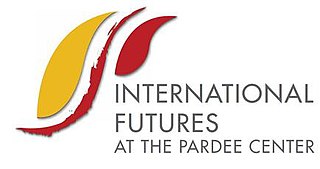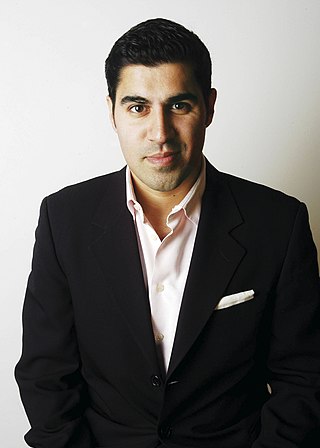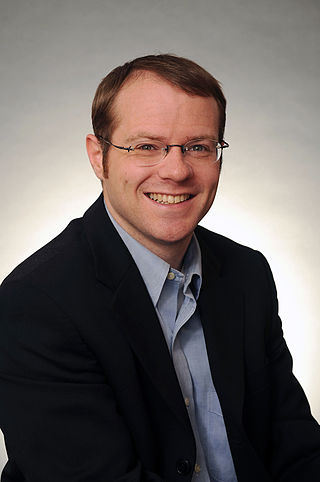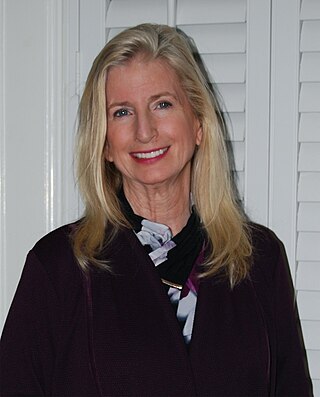The United Nations Development Programme (UNDP) is a United Nations agency tasked with helping countries eliminate poverty and achieve sustainable economic growth and human development. The UNDP emphasizes on developing local capacity towards long-term self-sufficiency and prosperity.
The Indian Ocean Research Group Inc. (IORG) is an Indian Ocean Regional academic network. The key objective of IORG is to initiate a policy-oriented dialogue, in the true spirit of partnership, among governments, industries, NGOs and communities, towards realizing a shared, peaceful, stable and prosperous future for the Indian Ocean region. IORG is currently based at the University of Adelaide, and Curtin University, Australia, South Asian University, New Delhi and Panjab University, Chandigarh, but members come from all across the world.
The Lee Kuan Yew School of Public Policy is an autonomous postgraduate school of the National University of Singapore (NUS), named after the late former Prime Minister of Singapore, Lee Kuan Yew.

Energy and American Society: Thirteen Myths is a 2007 book about energy security and climate change, edited by Benjamin K. Sovacool and Marilyn A. Brown. The book is suitable for both technical and non-technical audiences since it is written in plain English and is "easily digested by anyone with a rudimentary background or interest in energy economics".

International Futures (IFs) is a global integrated assessment model designed to help with thinking strategically and systematically about key global systems. It is housed at the Frederick S. Pardee Center for International Futures. Initially created by Barry B. Hughes of the Josef Korbel School of International Studies at the University of Denver in Colorado, the model is free for public use in both its online and downloadable forms.

Parag Khanna is an Indian-American specialist in geopolitics and globalization. He is the managing partner of FutureMap, and former managing partner of Hybrid Reality as well as Co-Founder & CEO of Factotum.

Non-Nuclear Futures: The Case for an Ethical Energy Strategy is a 1975 book by Amory B. Lovins and John H. Price. The main theme of the book is that the most important parts of the nuclear power debate are not technical disputes but relate to personal values, and are the legitimate province of every citizen, whether technically trained or not. Lovins and Price suggest that the personal values that make a high-energy society work are all too apparent, and that the values associated with an alternate view relate to thrift, simplicity, diversity, neighbourliness, craftsmanship, and humility. They also argue that large nuclear generators could not be mass-produced. Their centralization requires costly transmission and distribution systems. They are inefficient, not recycling excess thermal energy. The authors believed that nuclear reactors were less reliable and take longer to build, exposing them to escalated interest costs, mistimed demand forecasts, and wage pressure by unions.

The Dirty Energy Dilemma: What’s Blocking Clean Power in the United States is a 2008 book by academic Benjamin K. Sovacool, published by Praeger. In the book, Sovacool explores problems with the current U.S. electricity system and ways to overcome them.

Benjamin K. Sovacool is an American academic who is director of the Institute for Global Sustainability at Boston University as well as Professor of Earth and Environment at Boston University. He was formerly Director of the Danish Center for Energy Technology at the Department of Business Development and Technology and a professor of social sciences at Aarhus University. He is also professor of energy policy at the University of Sussex, where he formerly directed the Center on Innovation and Energy Demand and the Sussex Energy Group. He has written on energy policy, environmental issues, and science and technology policy. Sovacool is also the editor-in-chief of Energy Research & Social Science.

The United States Government Accountability Office reported more than 150 incidents from 2001 to 2006 of nuclear plants not performing within acceptable safety guidelines. According to a 2010 survey of energy accidents, there have been at least 56 accidents at nuclear reactors in the United States. The most serious of these was the Three Mile Island accident in 1979. Davis-Besse Nuclear Power Plant has been the source of two of the top five most dangerous nuclear incidents in the United States since 1979. Relatively few accidents have involved fatalities.

Trevor Findlay is director of the Nuclear Energy Futures Project at the Centre for International Governance Innovation (CIGI) in Waterloo, Ontario. He heads the CIGI project on the future of the IAEA. Findlay wrote the report on the Future of Nuclear Energy to 2030 which said that "transparency and collaboration should be engendered by establishing a global nuclear safety network encompassing all stakeholders -relevant international organizations, governments, civil society and, most vitally, the nuclear industry".

Marilyn A. Brown is a Regents' and Brook Byers Professor of Sustainable Systems in the School of Public Policy at the Georgia Institute of Technology. She joined Georgia Tech in 2006 after 22 years at Oak Ridge National Laboratory, where she held various leadership positions. Her work was cited by President Clinton as providing the scientific justification for signing the 1997 Kyoto Protocol. With Eric Hirst, she coined the term "energy efficiency gap" and pioneered research to highlight and quantify the unexploited economic potential to use energy more productively.

Contesting the Future of Nuclear Power: A Critical Global Assessment of Atomic Energy is a 2011 book by Benjamin K. Sovacool, published by World Scientific. Sovacool's book addresses the current status of the global nuclear power industry, its fuel cycle, nuclear accidents, environmental impacts, social risks, energy payback, nuclear power economics, and industry subsidies. There is a postscript on the Japanese 2011 Fukushima nuclear disaster. Based on detailed analysis, Sovacool concludes "that a global nuclear renaissance would bring immense technical, economic, environmental, political, and social costs". He says that it is renewable energy technologies which will enhance energy security, and which have many other advantages.
M. V. Ramana is professor and Simons Chair in Disarmament, Global and Human Security at the University of British Columbia, and Director of the Liu Institute for Global Issues, at the School of Public Policy and Global Affairs. A physicist by training, he previously worked at the Nuclear Futures Laboratory and the Program on Science and Global Security, both at Princeton University. Ramana is a member of the International Panel on Fissile Materials, the Canadian Pugwash Group, the International Nuclear Risk Assessment Group, and the team that produces the annual World Nuclear Industry Status Report.
Kristin Shrader-Frechette is O'Neill Family Professor, Department of Biological Sciences and Department of Philosophy, at the University of Notre Dame. She has previously held senior professorships at the University of California and the University of Florida. Most of Shrader-Frechette's research work analyzes the ethical problems in risk assessment, public health, or environmental justice - especially those related to radiological, ecological, and energy-related risks. Shrader-Frechette has received the Global Citizenship Award, and the Catholic Digest named her one of 12 "Heroes for the US and the World".
Eric Martinot is senior research director with the Institute for Sustainable Energy Policies in Tokyo, Japan, specialising in renewable energy commercialization. He is author of the 2013 REN21 Renewables Global Futures Report, and former lead author of the REN21 Renewables Global Status Report (2005–2010), an annual compilation of progress with renewable energy worldwide.
Kent E. Calder was the interim dean of the Johns Hopkins School of Advanced International Studies (SAIS), serves as the director of the Edwin O. Reischauer Center for East Asian Studies, and is also the Edwin O. Reischauer Professor of East Asian Studies at SAIS. Calder previously served as the vice dean for faculty affairs and international research cooperation at SAIS.
Mary Graham is an American writer and co-director of the Transparency Policy Project at Harvard University's John F. Kennedy School of Government.

Björn-Ola Linnér is a Swedish climate policy scholar and professor at Linköping University. He is program director of Mistra Geopolitics, a research programme that critically examines and explores the interplay between the dynamics of geopolitics, human security, and global environmental change. He is also affiliated at the Institute for Science, Innovation and Society at Oxford University and the Stockholm Environment Institute.
Navroz K Dubash is a professor at the Centre for Policy Research (CPR). He works on climate change policy and governance, the political economy of energy and water, and the regulatory state in the developing world. Widely published in these areas, Navroz serves on the Intergovernmental Panel on Climate Change as a Chapter Lead Author, Government of India advisory committees on climate change, energy and water policy, and the editorial boards of several international journals.










